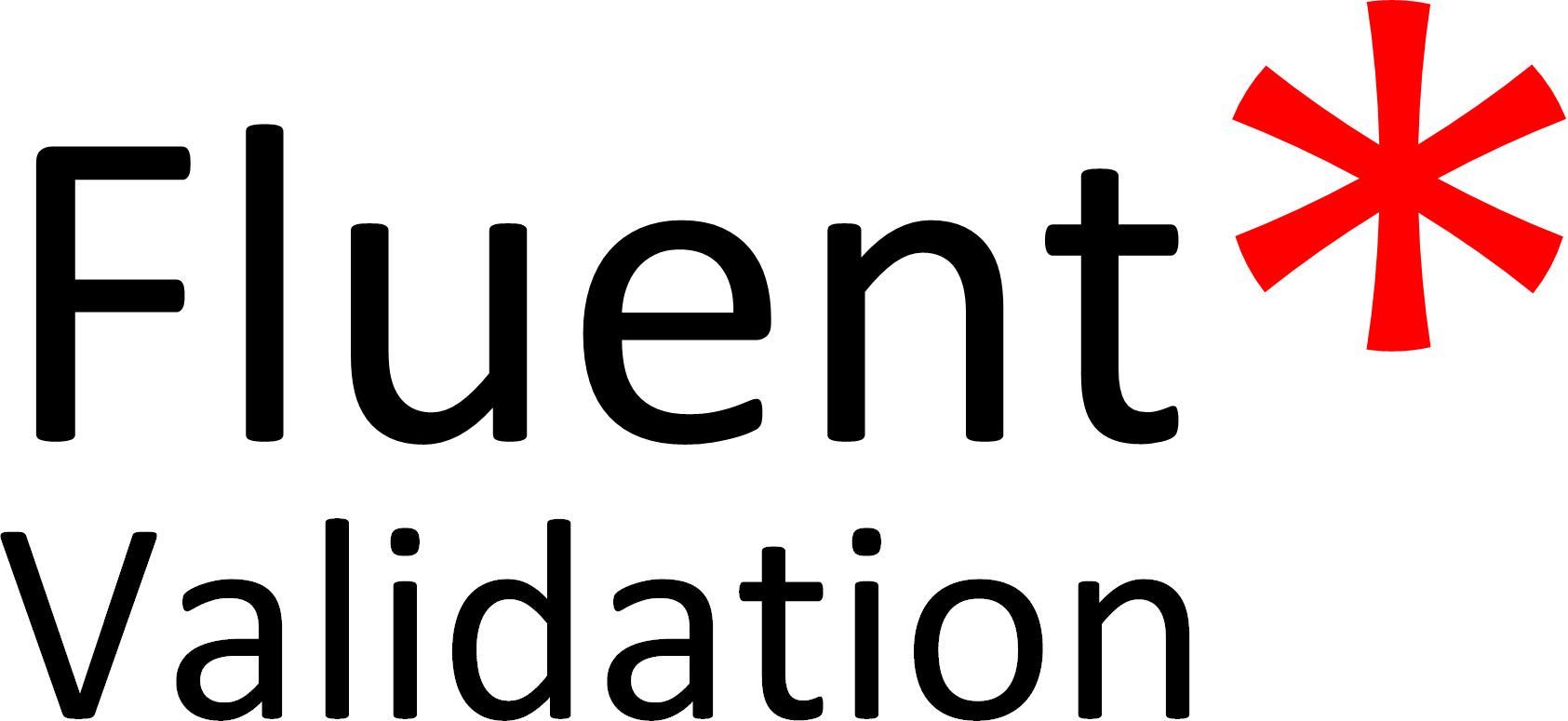A small validation library for .NET that uses a fluent interface and lambda expressions for building validation rules.
FluentValidation can be installed using the Nuget package manager or the dotnet CLI.
dotnet add package FluentValidation
For ASP.NET Core integration:
dotnet add package FluentValidation.AspNetCore
If you find FluentValidation useful, please consider becoming a sponsor, which will help keep the project going 🙏.
FluentValidation |
 |
 |
FluentValidation.AspNetCore |
 |
 |
FluentValidation.Mvc5 |
 |
 |
FluentValidation.WebApi |
 |
 |
using FluentValidation;
public class CustomerValidator: AbstractValidator<Customer> {
public CustomerValidator() {
RuleFor(x => x.Surname).NotEmpty();
RuleFor(x => x.Forename).NotEmpty().WithMessage("Please specify a first name");
RuleFor(x => x.Discount).NotEqual(0).When(x => x.HasDiscount);
RuleFor(x => x.Address).Length(20, 250);
RuleFor(x => x.Postcode).Must(BeAValidPostcode).WithMessage("Please specify a valid postcode");
}
private bool BeAValidPostcode(string postcode) {
// custom postcode validating logic goes here
}
}
var customer = new Customer();
var validator = new CustomerValidator();
ValidationResult results = validator.Validate(customer);
bool success = results.IsValid;
IList<ValidationFailure> failures = results.Errors;Documentation can be found on the project site.
FluentValidation has adopted the code of conduct defined by the Contributor Covenant to clarify expected behavior in our community. For more information see the .NET Foundation Code of Conduct.
FluentValidation is copyright © 2008-2020 .NET Foundation, Jeremy Skinner and other contributors and is licensed under the Apache2 license.
This project is supported by the .NET Foundation.
This project is supported by JetBrains, who kindly provide licenses for their software, free of charge, to help with the development of this project.
